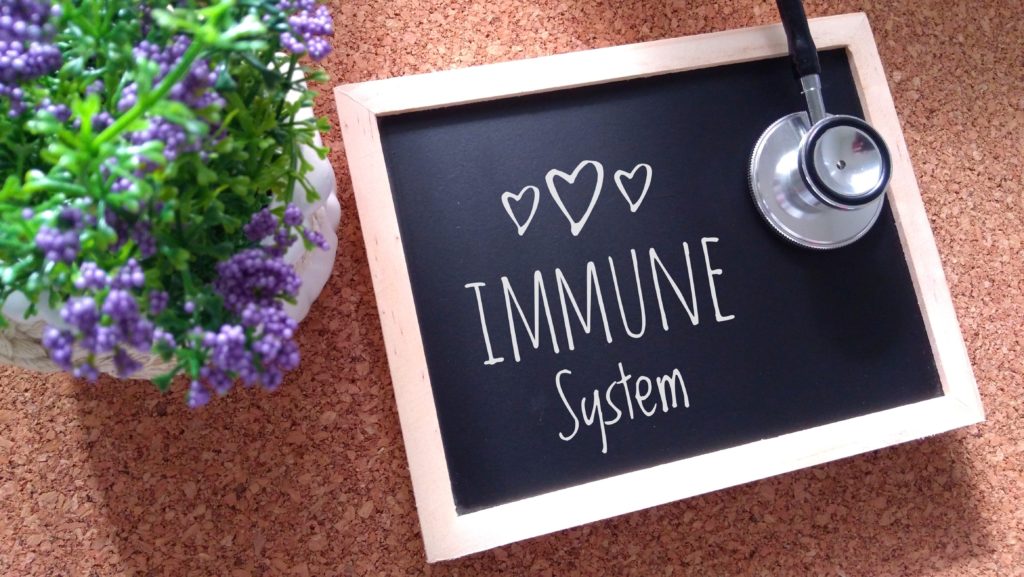Are People with Diabetes Immunocompromised?
Are people with diabetes considered "immunocompromised?" This is a question that's cropping up regularly in the diabetes community, especially as we're dealing with the COVID-19 pandemic and people with compromised immune systems are cited as being in a "higher risk group."
The short answer? No, people with diabetes are not immunocompromised, and they are not at a higher risk of contracting COVID-19. But it's not a flat "no," because people with diabetes are at a higher risk of having complications and poorer outcomes from COVID-19, and our best defense, as people with diabetes, is to keep blood sugars in range as often as possible.
What does "immunocompromised" mean?
The National Cancer Institute at the National Institutes of Health defines immunocompromisd as, "Having a weakened immune system. Patients who are immunocompromised have a reduced ability to fight infections and other diseases. This may be caused by certain diseases or conditions, such as AIDS, cancer, diabetes, malnutrition, and certain genetic disorders. It may also be caused by certain medicines or treatments, such as anticancer drugs, radiation therapy, and stem cell or organ transplant. Also called immunosuppressed."
Having diabetes isn't what makes someone's immune system weaker, but chronic high blood sugars and out-of-range numbers can weaken the immune system, leaving people more susceptible to illness and complications from illnesses.

Does having diabetes make me, or my loved one, immunocompromised?
People with type 1 diabetes are not immunocompromised because they have diabetes, but if their diabetes is uncontrolled, they may be at higher risk of complications from disease. People who are at the greatest risk are those with consistently high blood sugars (hyperglycemia) and who also have additional chronic illnesses, like heart disease or asthma. There isn't enough data to determine if there's a difference between outcomes for people with type 1 or type 2 diabetes.


According to the American Diabetes Association, "Your risk of getting very sick from COVID-19 is likely to be lower if your diabetes is well-managed. When people with diabetes do not manage their diabetes well and experience fluctuating blood sugars, they are generally at risk for a number of diabetes-related complications. Having heart disease or other complications in addition to diabetes could worsen the chance of getting seriously ill from COVID-19, like other viral infections, because your body's ability to fight off an infection is compromised. Viral infections can also increase inflammation, or internal swelling, in people with diabetes. This is also caused by above-target blood sugars, and both could contribute to more severe complications."
Saying "keep blood sugars well controlled" is nice, but it's not easy. What can I do to take better care of my diabetes?
Well-managed blood sugars are one of the best strategies for staying healthiest, but we know that diabetes isn't easy to manage all the time, and adding stress (like concerns about a global pandemic) doesn't help at all. Some things are out of our control, but there are some ways we can continue to pursue better health.
Continue to take your medications as prescribed. Do not skip insulin doses, and take any other maintenance medications as prescribed, and keep your medical team in the loop if you become ill. If you are struggling to access your medications, please review these available resources.
Keep tabs on your blood sugars. Whether through finger sticks, continuous glucose or flash glucose monitoring (or a combination of both), make sure you are tracking your glucose and being as proactive with your numbers as possible. Consider pre-bolusing for meals to help keep post-prandial spikes to a minimum, and make use of carb counting apps and insulin pump features that can reduce miscalculations as much as possible.
Make use of tech, if you can. If you have access to a continuous glucose monitor and/or an insulin pump, use that diabetes technology to the best level your access allows. There are many diabetes apps in the diabetes space that make keeping track of diabetes details easier, as well as smart insulin pens and DIY options that can help keep blood sugars more tightly managed.
What do I do if I get sick?
These suggestions are from the Centers for Disease control, and they may change as the COVID-19 situation updates, so please check back here and with the government health sites for the most current information.
Stay home, if you can. Most people who have COVID-19 have mild illness and are able to recover at home without medical care. Do not leave your home, except to get medical care. Do not visit public areas.
Stay in contact with your doctor. Call before going in to get medical care. If you have trouble breathing, get care immediately.
Avoid public transportation. Avoid using public transportation, ride-sharing, or taxis.
Stay in isolation. Stay away from others. Designate, if you can, a room, if possible, away from other people and pets in your home, and use a separate bathroom, if available. Wear a cloth face covering over your nose and mouth if you must be around other people, even at home.
Keep your germs to yourself. Cover your coughs and sneezes, and throw any used tissues in a lined trash can.
Wash your hands often. Wash with soap and warm water for at least 20 seconds, especially after blowing your nose, coughing, or sneezing, going to the bathroom, and before eating food.
Clean "high touch" surfaces every day. Clean and disinfect surfaces like kitchen counters, cell phones, kitchen appliances, etc. If you are sick, have a caregiver disinfect these surfaces.
Stay safe, and stay vigilant, CWD friends and family. We're here for you for the long haul, and we will support one another through these unusual times.
Reviewed by George Grunberger, MD and Lynda Fisher, MD
- Are children with type 1 diabetes immunocompromised?
- What do to if you are sick - Centers for Disease Control
- Diabetes and Coronavirus - American Diabetes Association
